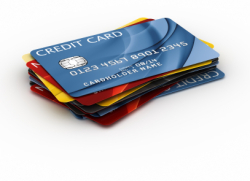6 Ways to Reduce Debt

The importance of saving for retirement cannot be overstated. In addition, no matter how much money you are setting aside for retirement, you may also have credit card debt. Even those with expansive investment accounts and retirement funds able to support them for years, are still paying costly credit card debt. Does this make sense? Is there a way to break the debt cycle that has you putting away less than you could be and paying more than you need to?
A credit card is a convenient tool…but it can be one of the most expensive. We commonly meet investors with an ample cash reserve and a significant retirement portfolio yet they carry (non-mortgage) debt month to month. How do you break the hold debt has on you? How can you stop paying interest so you can start earning interest on your education accounts and retirement investments instead? Here are six ways to put more money into your pocket and less into the creditors.
Negotiate and pay it off. Talk to lenders today…or find out exactly how much you owe and simply pay it off. Taking money from savings accounts and perhaps even liquidating assets is the only option for many paying high credit card debt. This type of debt is the most likely to hurt you because it carries a high interest rate. Will you make more on the investment or retirement account than in interest payments to lenders? If not, simply pay it off.
Refinance to a lower interest rate. If you cannot pay it off all at once, at least reduce your carrying costs. Instead, get into the lowest possible loan out there for you. This makes the debt more affordable and gives you time to pay it off. Take a look at www.creditcards.com or www.cardratings.com.
Put a limit on it. If you wish to use a credit card for convenience, limit it to what can be paid off in full each month. This way, you take advantage of the card's use without paying for it. Carrying a balance of any amount is expensive…and don’t be late on your payment and subject yourself to those onerous late fees.
Manage it. For those who have children with credit lines or others that hold a line of credit in your name, that you pay each month, start managing it better. This is especially true of children who you want to have access to money when they need it, but need to learn the true cost of using credit. Limit the amount of credit exposure.
Never pay just minimum. This is one of the worst habits which threaten your financial security. Pay as much as you can afford on the largest interest rate line of credit you have until it’s paid off. Paying the minimum each month simply assures that you will pay thousands of dollars too much over the lifetime of that loan or line.
Rework your mindset. Having it right now is not always your best financial decision. Instead, consider what the future holds for you. Let’s say you spend $10,000 and paying it off over one year (which is $833 per month at 8% interest) for a total of $10,438. Instead, place that $10,438 into a retirement account or education savings plan at the same 8 percent. In ten years, you would have $23,268…over 20 years, that amount will have grown to $51,647. This is based on a simple savings calculator, and it only accounts for placing that initial one-year amount into your savings. Take it one step further and do it every month and every year…
What is your child’s education, your own retirement and economic well-being worth to you? Having additional assets set aside for your future goals is too powerful to throw away.
NOTE: This information is being provided strictly as a courtesy. When you link to any of the websites provided, you are leaving this site. Neither LPL Financial Services, Inc. or Summit Financial Advisors, LLC make any representation as to the completeness or accuracy of information provided at these sites. LPL Financial Services, Inc. and Summit Financial Advisors, LLC assume no liability for any direct or indirect technical system or system issues or any consequences arising out of your access of a third party site. When you access one of these sites, you are leaving Summit Financial Advisors, LLC website and assume total responsibility and risk for your use of the sites to which you link.


